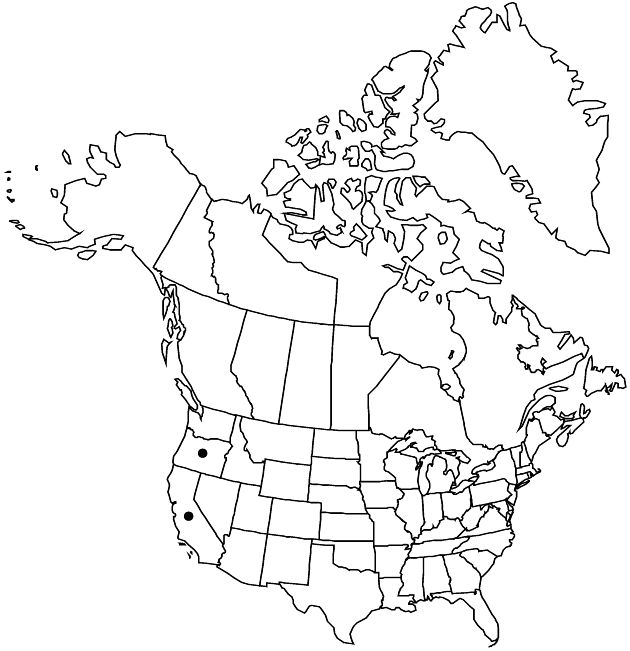Difference between revisions of "Cirsium remotifolium var. rivulare"
Man. Fl. Pl. Calif., 1164. 1925.
Common names: Klamath thistle
Synonyms: Cirsium acanthodontum S. F. Blake Cirsium oreganum Piper
FNA>Volume Importer |
FNA>Volume Importer |
||
| Line 12: | Line 12: | ||
|name=Cirsium acanthodontum | |name=Cirsium acanthodontum | ||
|authority=S. F. Blake | |authority=S. F. Blake | ||
| + | |rank=species | ||
}} {{Treatment/ID/Synonym | }} {{Treatment/ID/Synonym | ||
|name=Cirsium oreganum | |name=Cirsium oreganum | ||
|authority=Piper | |authority=Piper | ||
| + | |rank=species | ||
}} | }} | ||
|hierarchy=Asteraceae;Asteraceae tribe Cardueae;Cirsium;Cirsium remotifolium;Cirsium remotifolium var. rivulare | |hierarchy=Asteraceae;Asteraceae tribe Cardueae;Cirsium;Cirsium remotifolium;Cirsium remotifolium var. rivulare | ||
| Line 30: | Line 32: | ||
|elevation=10–1200 m | |elevation=10–1200 m | ||
|distribution=Calif.;Oreg. | |distribution=Calif.;Oreg. | ||
| − | |discussion=<p>Plants of < | + | |discussion=<p>Plants of <i></i>var.<i> rivulare</i> occur in the western Klamath Mountains of southwestern Oregon and northwestern California and the adjacent coastal plain. Although these plants are usually slender and erect with well separated leaves, they assume a compact growth form in maritime habitats.</p> |
|tables= | |tables= | ||
|references= | |references= | ||
| Line 39: | Line 41: | ||
-->{{#Taxon: | -->{{#Taxon: | ||
name=Cirsium remotifolium var. rivulare | name=Cirsium remotifolium var. rivulare | ||
| − | |||
|authority=Jepson | |authority=Jepson | ||
|rank=variety | |rank=variety | ||
| Line 54: | Line 55: | ||
|publication year=1925 | |publication year=1925 | ||
|special status= | |special status= | ||
| − | |source xml=https://jpend@bitbucket.org/aafc-mbb/fna-data-curation.git/src/ | + | |source xml=https://jpend@bitbucket.org/aafc-mbb/fna-data-curation.git/src/eaa6e58056e40c9ef614d8f47aea294977a1a5e9/coarse_grained_fna_xml/V19-20-21/V19_98.xml |
|tribe=Asteraceae tribe Cardueae | |tribe=Asteraceae tribe Cardueae | ||
|genus=Cirsium | |genus=Cirsium | ||
Revision as of 20:23, 16 December 2019
Phyllaries imbricate or subequal, linear, margins and/or apices regularly spinulose-serrulate, sometimes weakly expanded and scarious. Corollas usually purple (infrequently cream-colored), 20–25 mm, tubes 8–12 mm, throats 5–6 mm, lobes 6–8 mm. 2n = 32.
Phenology: Flowering late spring–summer (May–Aug).
Habitat: Sea bluffs, river valleys, meadows, grasslands, open coniferous or mixed coniferous-hardwood forests
Elevation: 10–1200 m
Discussion
Plants of var. rivulare occur in the western Klamath Mountains of southwestern Oregon and northwestern California and the adjacent coastal plain. Although these plants are usually slender and erect with well separated leaves, they assume a compact growth form in maritime habitats.
Selected References
None.
Lower Taxa
None.
